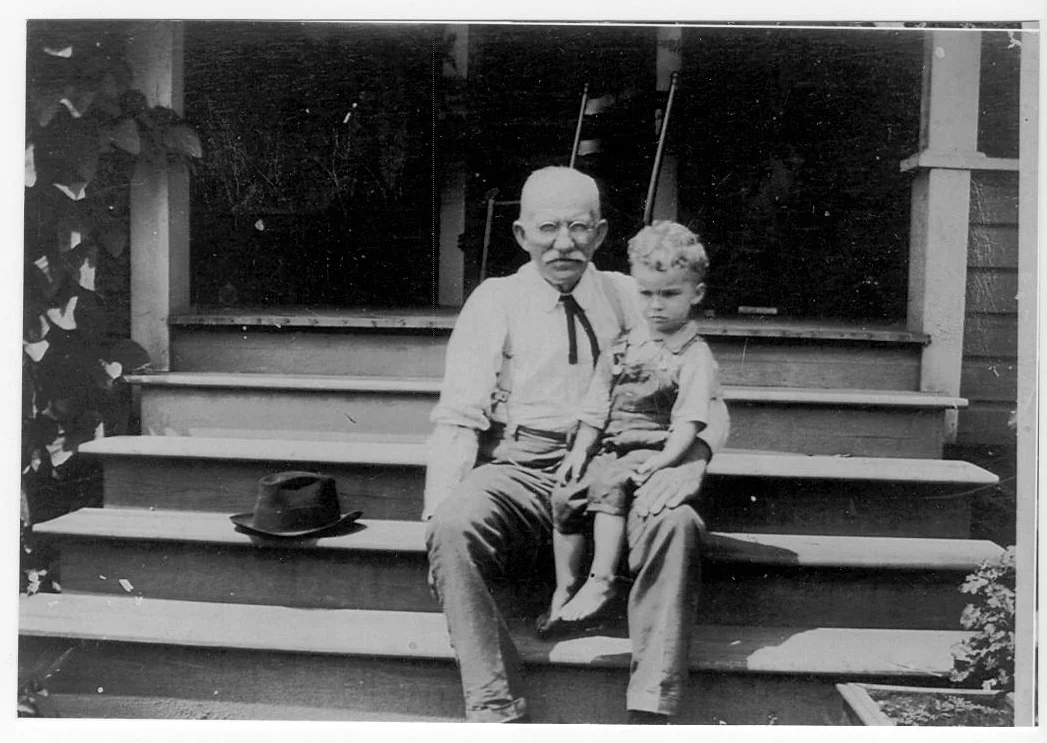Born in 1847, W.J. Stewart, nicknamed "Dule," operated a pottery shop and government still on my land for a number of years. My children and I discovered what appears to be a kiln site when we were wading through a tiny creek. We found piles of pottery shards, salt-glazed, and one shard we found had his name stamped on it.
A few years later I found a pile of debris in the same area which appears to be remnants of his kiln. I brought back a piece -- consisting of a chunk of brick, small stones and a shard welded together with slag -- and display it in my showroom along with a few of the shards.
A friend and I interviewed my neighbor, the late Purvis Hussey who was born in 1910 and remembers meeting W.J. Stewart in the summer of 1917 when he (Hussey) was seven years old. Hussey knew that his father, Milo Hussey, had purchased Stewart's 120 acres in 1908, at which time Stewart moved to Mississippi to engage in peanut farming (returning in summer of 1917 for a visit). This 1908 property sale being supported by the deed record, thus establishes 1908 as the end of pottery usage at this site.
Mr. Hussey further remembers that Stewart was a potter with a pottery kiln on the east side of the creek and a whisky still on the west side. Apparently, Stewart sold wares (maybe whiskey, too) in South Carolina via wagon, traveling down the old Plank Road (now NC 705). Although no kiln was visible when Hussey worked the land as a boy, he remembers that pottery shards would be turned up when ploughing over the "curve of the hill" above the creek.
Since that interview, I met a couple of Stewart's surviving great-grandchildren, and they informed me that Stewart returned to the Westmoore area to live out his last years. The great-grandchildren informed me that Stewart is buried just down the road in an old family cemetery on Emily Lane. Another neighbor told me his tombstone is a simple stone, the largest stone in the cemetery.
